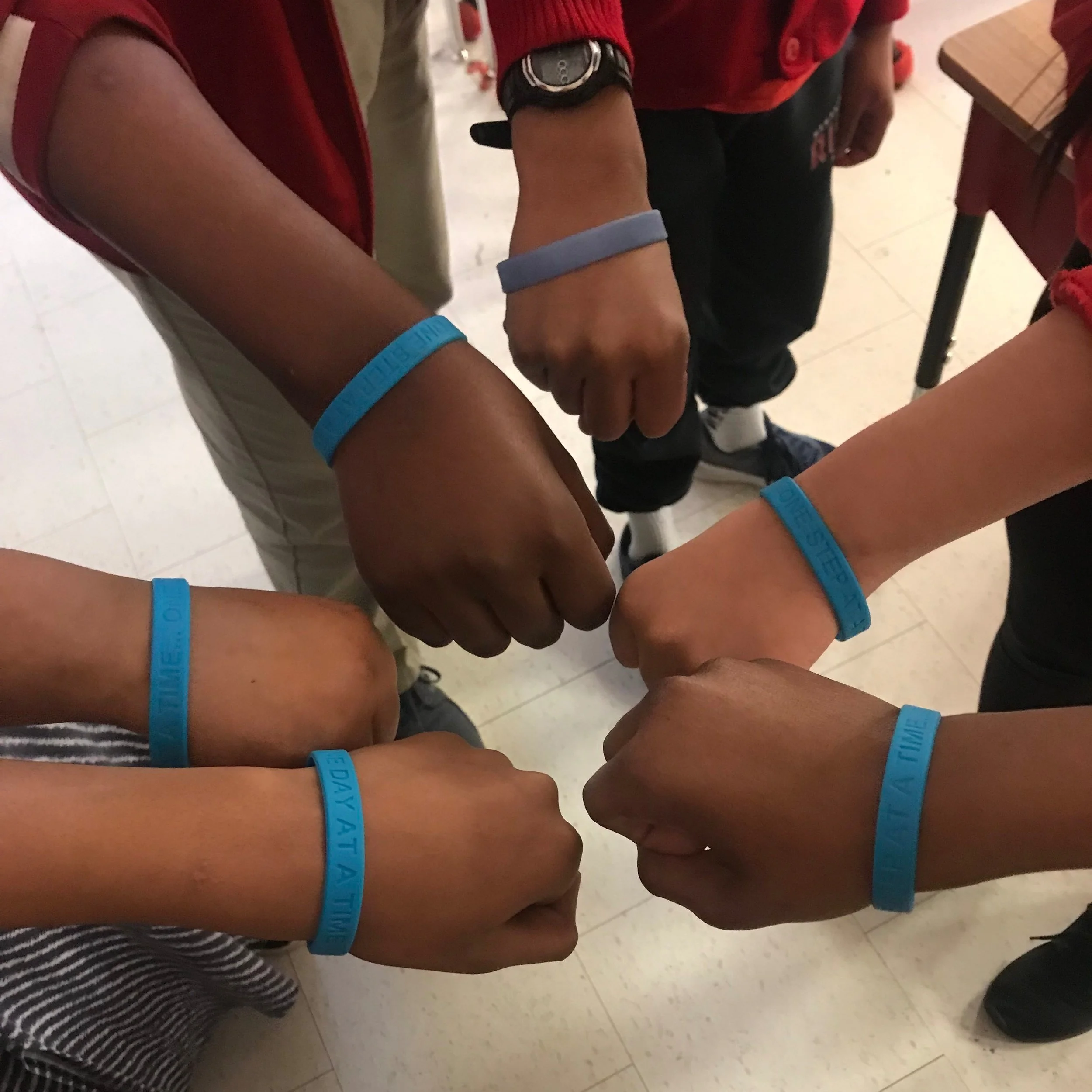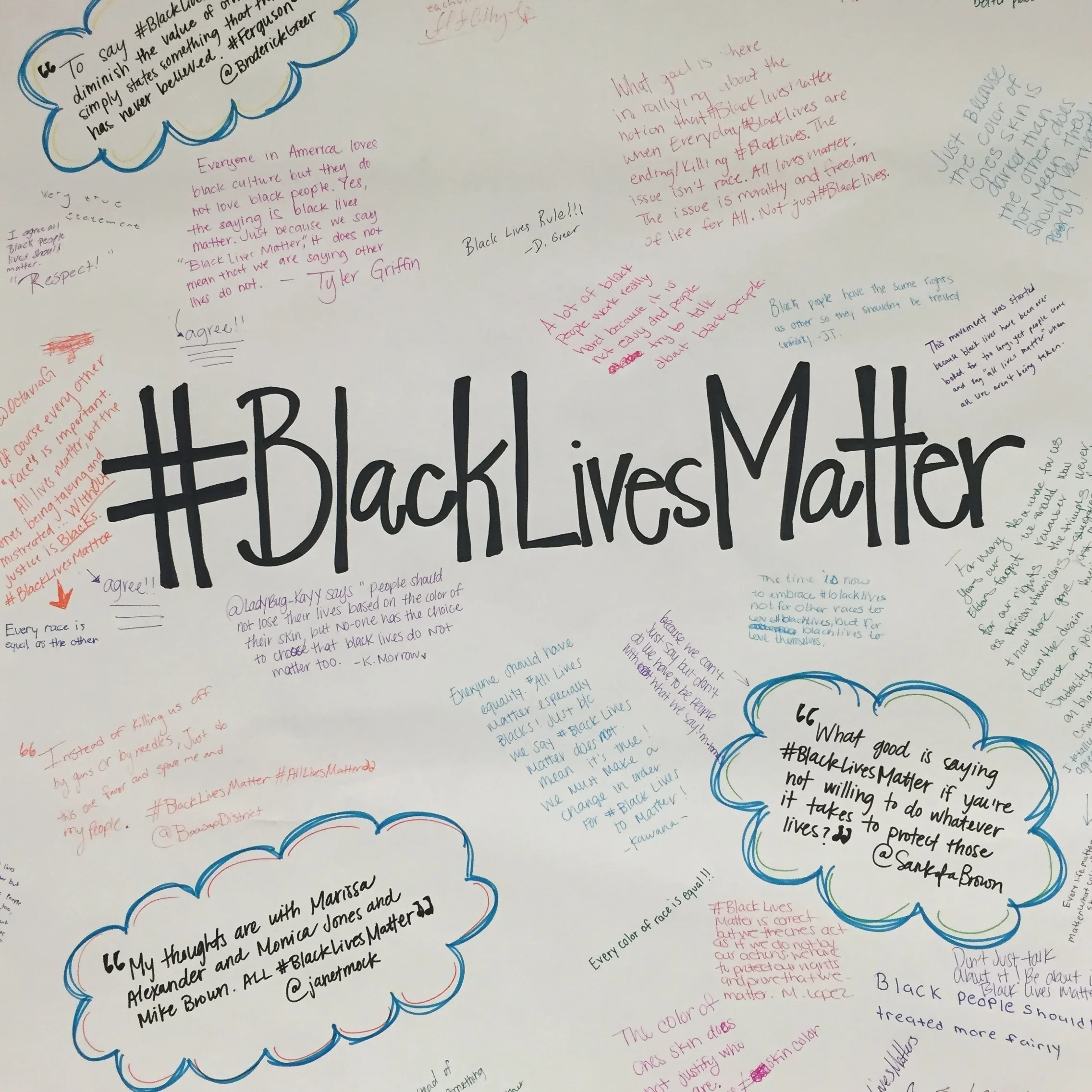Advocacy
Students have knowledge of injustice in the world, have informed opinions about it, and know that their voice and actions have value. They can advocate for themselves and others.
INTRODUCTION
Each day I walk into my classroom and teach students with varying ideas of the injustices in the world — some of whom are directly affected by those injustices with parents being held by immigration services and others who believe too much homework is an injustice. Because my goal is to teach the whole student, to teach students how to be curious, how to ask questions, how to be informed, and how to take action, I embed advocacy issues throughout my curriculum through the use of literature.
In my four years of teaching various grade levels, spanning primarily from 7th to 12th, I have stayed true to the goals I set out for myself and my students when I first began teaching in 2015:
Students will be able to use literature as a way to inform their developing worldviews and to expand their own perspectives of what is possible in their futures. Through the use of novel studies and informational texts, students will learn the harsh realities that face various cultures in the world and learn how a student can be an advocate for him/herself and his/her community. Students will also develop empathy toward those who are different and learn to embrace and appreciate those differences among peers, cultures, and socio-economic groups.
I choose to introduce my students to novels and informational texts that are relevant to them. When I taught 12th grade in a predominantly African American community, we focused on social justice issues they cared about and sought out ways to fight those issues as graduation and college loomed in the near future, and when teaching my 7th graders, many of whom are the children of immigrants, we focused on the experiences of immigrants and refugees. Through the use of stories, characters, and informational texts, I helped my students develop well-informed opinions of the injustices facing them, as well as people in other parts of the world. I also introduced them to characters who illustrated how the voice of an adolescent can effect change and provided my students an opportunity to put action to the issues that became important to them.
Below I have outlined an advocacy project we completed in 7th grade, as well as an advocacy and social justice research paper completed by my 12th grade students.
In 7th grade, my students studied the history of conflicts and the modern challenges that face the people of South Sudan. We learned about how a government can marginalize entire cultures and leave them without the most basic resources, such as water. Throughout the unit, students learned to write about these injustices, the students raised money for “Water for South Sudan,” learning that 12-year-olds have the power to advocate for others, and finally the students participated in Socratic Seminars to discuss the injustices we studied throughout the unit.
My 12th grade students — with graduation, college, and the real world quickly approaching — studied various social issues that impacted them and their communities directly. I used informational texts and social media campaigns to introduce these topics and provide a way for them to develop their own well-rounded opinions. The students then completed their own research, wrote social justice research papers, and presented their ideas.
While both of these advocacy projects address very different issues, each provided my students with a strong understanding of injustice in the world by exposing them to the realities people face in other parts of the world, as well as by allowing them to explore issues that are closer to home. The informational texts and novels provided students with the opportunity to write about and discuss these issues, ultimately allowing them to develop their own opinions and ideas. My students also developed their own voices and found ways to take action — the fundraiser allowed my students to advocate for others and the research papers allowed my seniors to advocate for themselves.
Taking Action for South Sudan
This section illustrates how my 7th grade students learned about the clean water crisis facing the people of South Sudan, and details how they took action to raise money to help the Sudanese people build a well. This section also includes the Socratic Seminar, in which my students discussed the impacts of literature on their worldviews and their reflections of how they were able to advocate for others.
Addressing Social injustice
This section outlines the senior social justice research project my 12th graders participated in. This section includes the informational texts I provided to help my students gain knowledge and form opinions about local injustices and also provides samples of the students’ research papers, wherein they exam and address the issues of injustice most important to them.
CONCLUSION
Regardless of the grade-level I teach, my goal as a teacher has stayed the same: I want my students to become curious thinkers who ask questions and advocate for themselves and others. My intention has never been to assign my opinions to my students, but to create an environment in which they can form their own opinions about issues that are important to them. Some of my students, like my 7th graders, are just realizing how wide-spread injustices are and through our South Sudan advocacy project, they were able to affect real change and to see the results of their actions. My students learned empathy, compassion, and to be concerned for others — and the results of their fundraiser were astonishing. They have learned what it means to advocate for others. Other students, like my seniors, were very familiar with injustice; however, they had not been given the information to learn where that injustice came from or the space in which to identify solutions they could work toward as citizens of the world. My seniors learned how to research and be well-informed in order to effect change.
Advocacy is not something that can be taught or learned within a single project or assignment; however, I believe that in teaching my students how to access information and giving them the confidence of being their own advocates and advocates for others, they will continue to practice advocacy as they get older.


